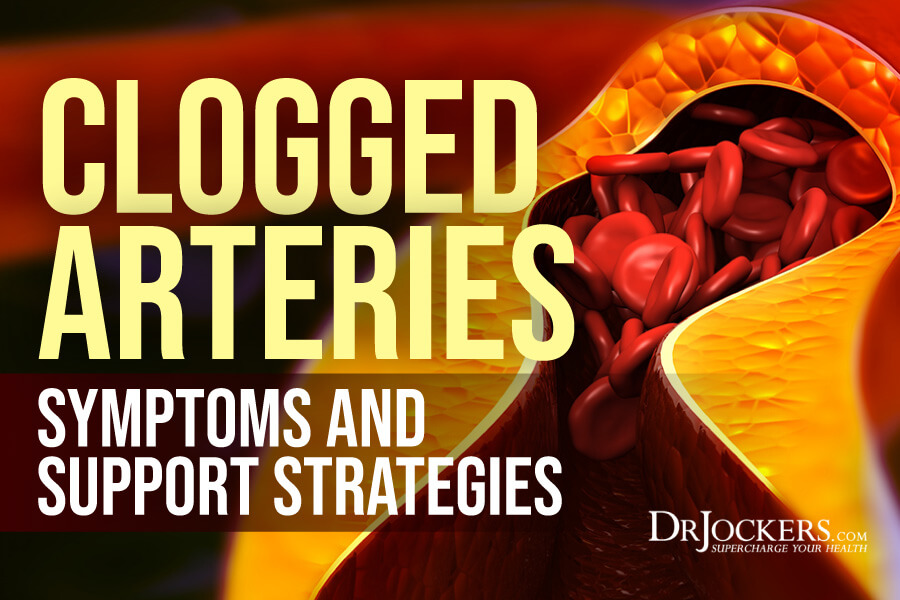 Clogged Arteries: Causes, Symptoms & Support Strategies
Clogged Arteries: Causes, Symptoms & Support Strategies
Your arteries are major blood vessels that carry oxygen-rich blood throughout your body. Healthy arteries have smooth inner walls allowing smooth blood flow. Clogged arteries, on the other hand, may decrease or block healthy blood flow, and increase your risk of heart attack, stroke, and even death due to a buildup of a substance called plaque on their inner walls.
In this article, you will learn what clogged arteries are and their pathophysiology. You will understand the major causes of blocked arteries. I will share some important lab work that may help to determine your risk factors. I will also offer some powerful natural support strategies to help improve blood flow and cardiovascular health.
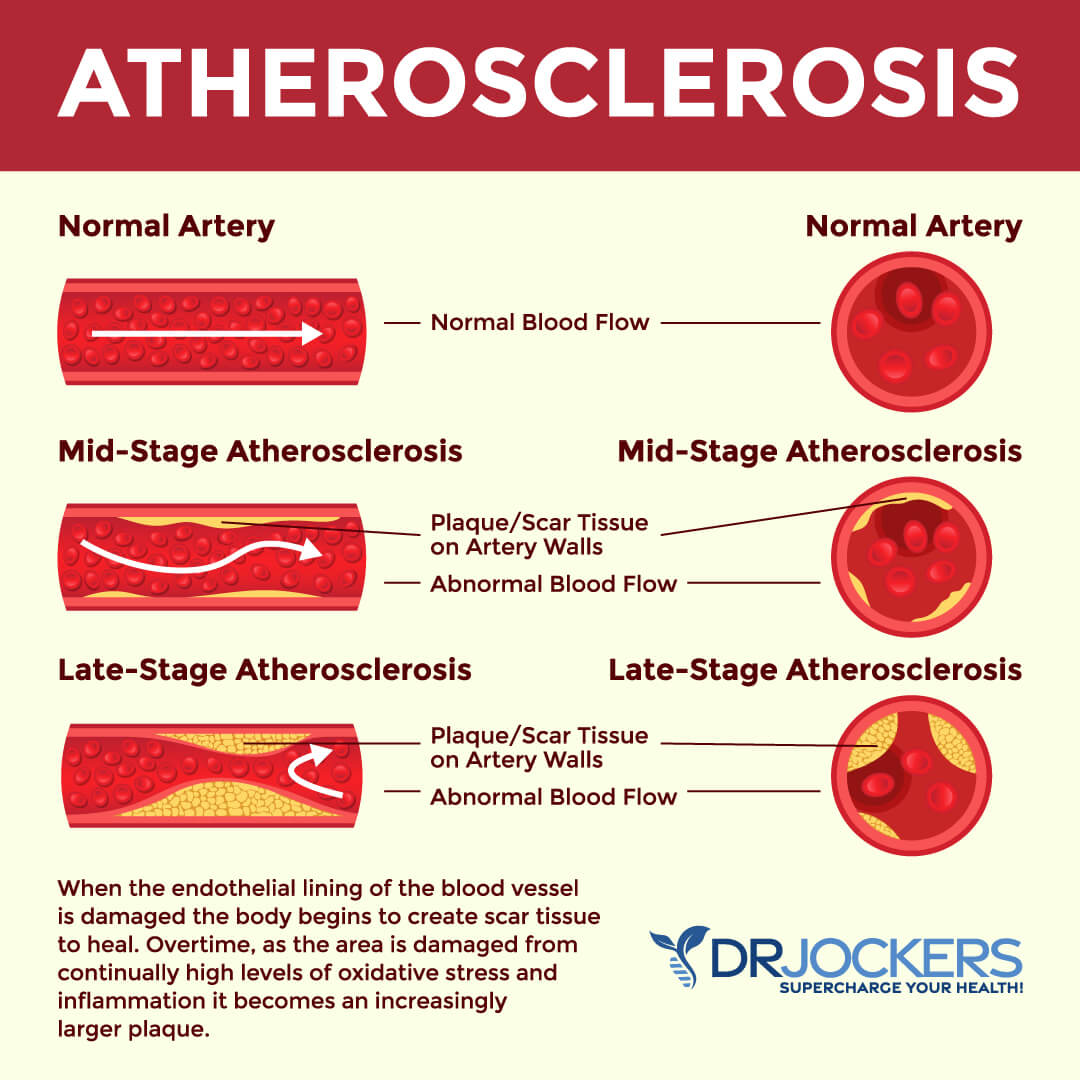
What Are Clogged Arteries
Your arteries are major blood vessels that go from the tip of your toes to your brain. They carry oxygen-rich blood throughout your body. Your arteries should have smooth inner walls to allow smooth blood flow.
However, if there is a buildup of a substance called plaque on the inner walls, it means that you have clogged arteries or arterial plaque. This can reduce a healthy blood flow or block blood flow completely. Clogged arteries are a serious health issue as they increase the risk of stroke, heart attack, and death (1).
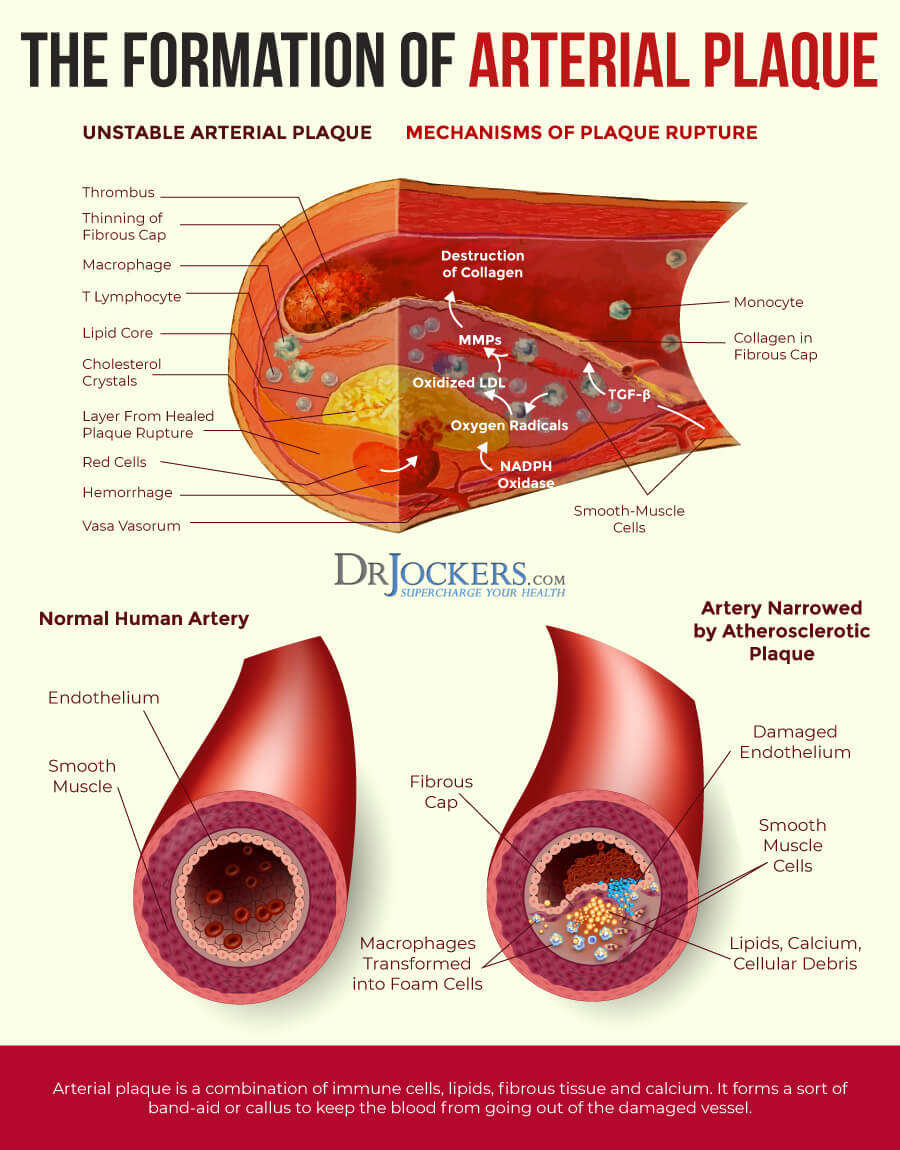
Pathophysiology of Clogged Arteries
Clogged arteries develop when plaque or fatty deposits made up of cholesterol, cellular waste products, calcium, and fibrin clog your arteries. As a result of this build-up, the walls of your blood vessels get thicker narrowing the artery channels and reducing normal blood flow. This means that oxygen and nutrients can not effectively travel around your body.
Plaques may develop in various areas of your body. They may restrict or completely block the blood flow in medium and large arteries of your heart, brain, legs, arms, kidneys, or pelvis. Plaques increase the risk of coronary heart disease, peripheral artery disease (PAD) in the extremities, carotid artery disease in the neck arteries, angina, and chronic kidney disease.
Plaques may also break off, get carried away by the bloodstream, and get stuck, causing a blood clot (thrombus) that may stick to the inner wall of your blood vessels. This may also reduce or block blood flow increasing the risk of tissue death, heart attack, or stroke. Clogged arteries may also increase the risk of erectile dysfunction or lower back pain from clogged lumbar arteries.
Clogged arteries are a slow and progressive disease. They may start to develop as early as childhood. In some people, it may advance quickly in one’s 30s, while in others, it may not become serious and dangerous until their 50s, 60s, or later.
While it is not clear what exactly causes clogged arteries, it seems that high blood pressure, high oxidized cholesterol, high triglycerides, and smoking cigarettes are among the main factors that can lead to such clots. In the next section, we will discuss various healthy, dietary, lifestyle, and environmental factors that may contribute to these problems and may increase your risk of clogged arteries (1, 2, 3, 4, 5, 6).
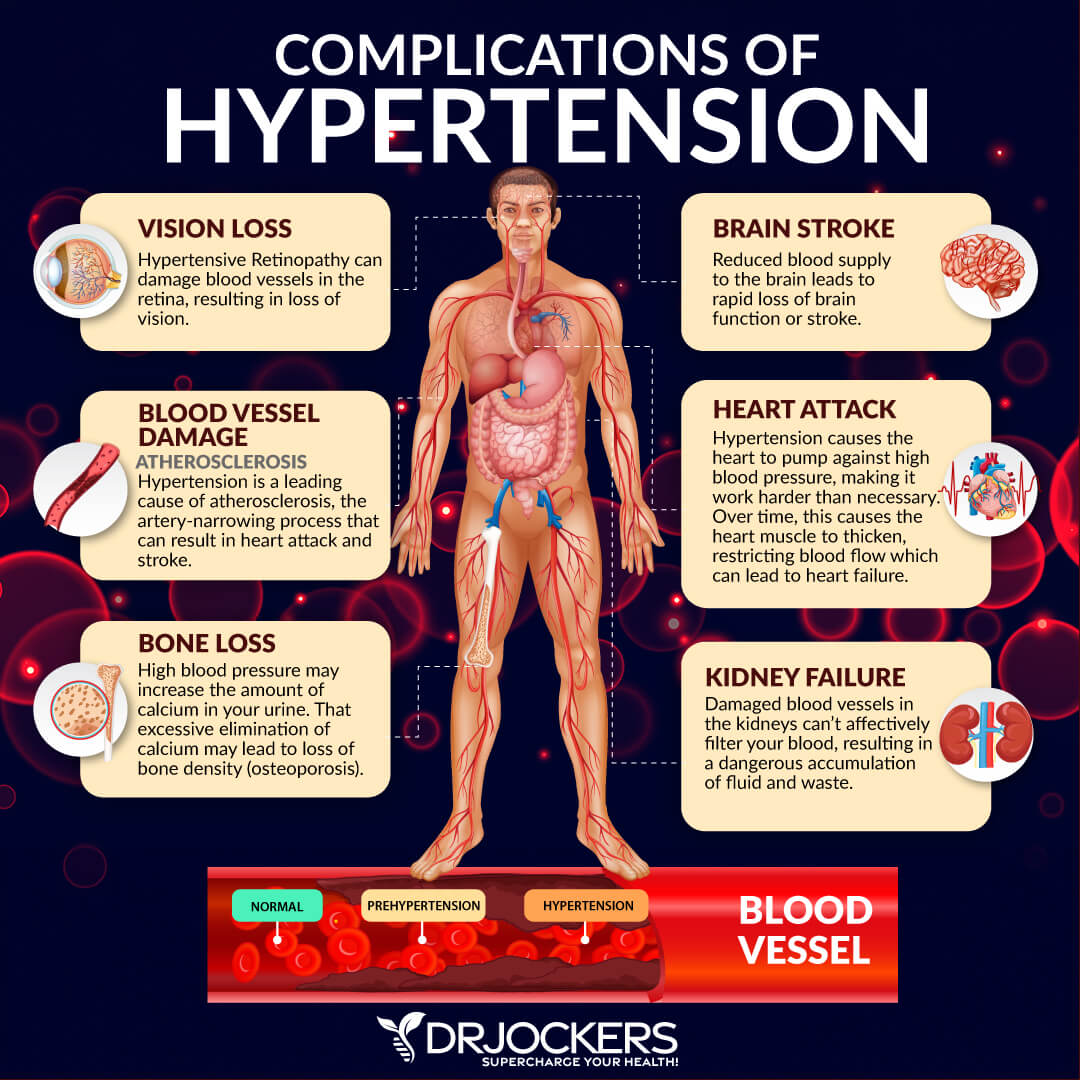
Major Causes of Clogged Arteries
Much of our society believes that clogged arteries are primarily a genetic issue. However, science has shown that there are various health, lifestyle, and environmental factors that may increase the likelihood of clogged arteries.
Understanding these major causes is critical to start taking important steps to improve your overall health and decrease your chances of health issues. Let’s look at the possible major causes of clogged arteries.
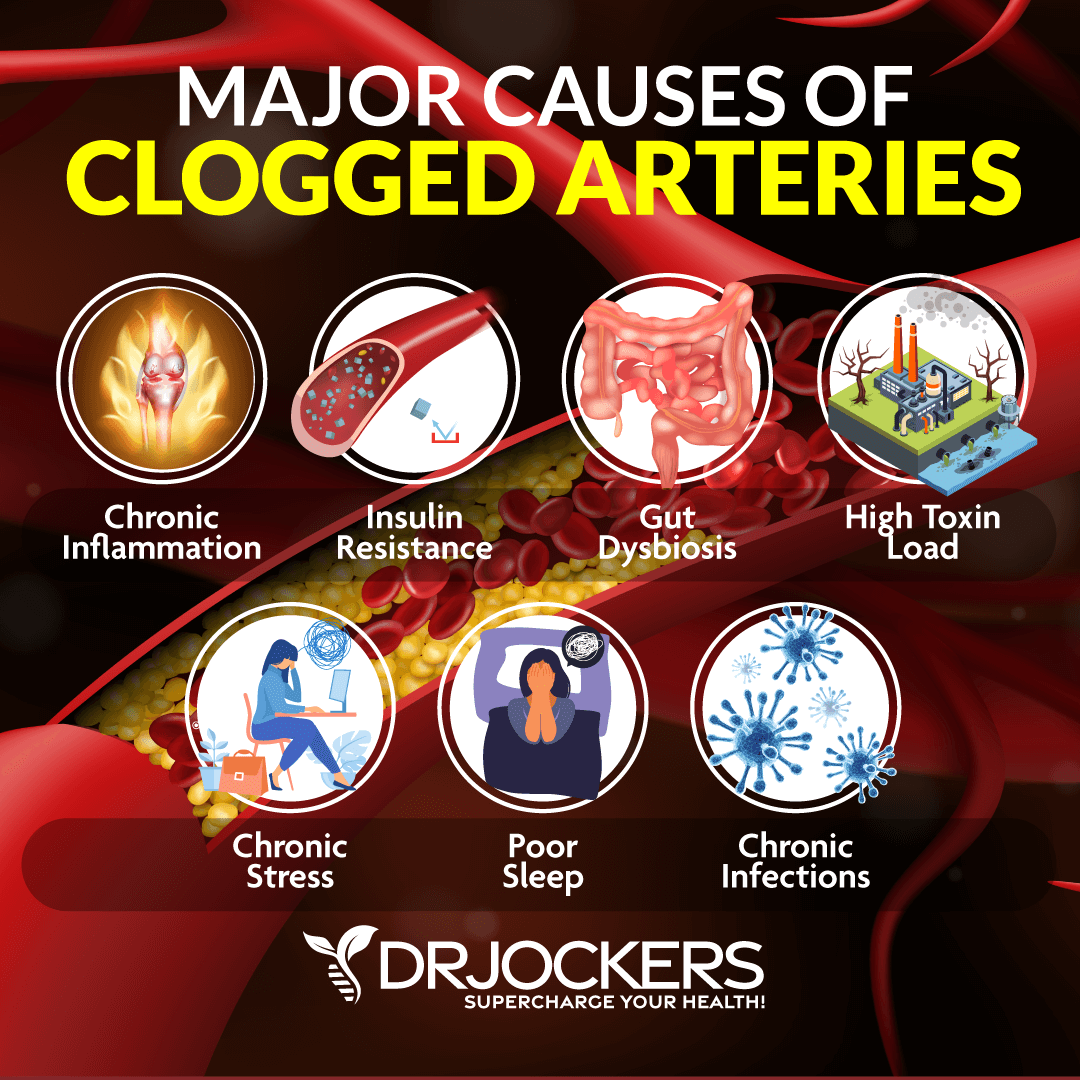
Chronic Inflammation
Inflammation is part of your normal immune response to injury, infection, or illness. It helps recovery. However, inflammation is unhealthy when it becomes chronic due to an unhealthy diet, unhealthy lifestyle, environmental stressors, and chronic stress. Chronic inflammation may increase your risk of high cholesterol and other factors that may contribute to it.
Already existing plaques in your arteries may also increase chronic inflammation in your body feeding an unhealthy cycle. While the role of chronic inflammation and heart disease is still not completely understood, the American Heart Association has pointed out that chronic inflammation may contribute to clogged arteries, heart disease, heart attacks, and strokes. Therefore, lowering chronic inflammation is important for your health (7, 8, 9).
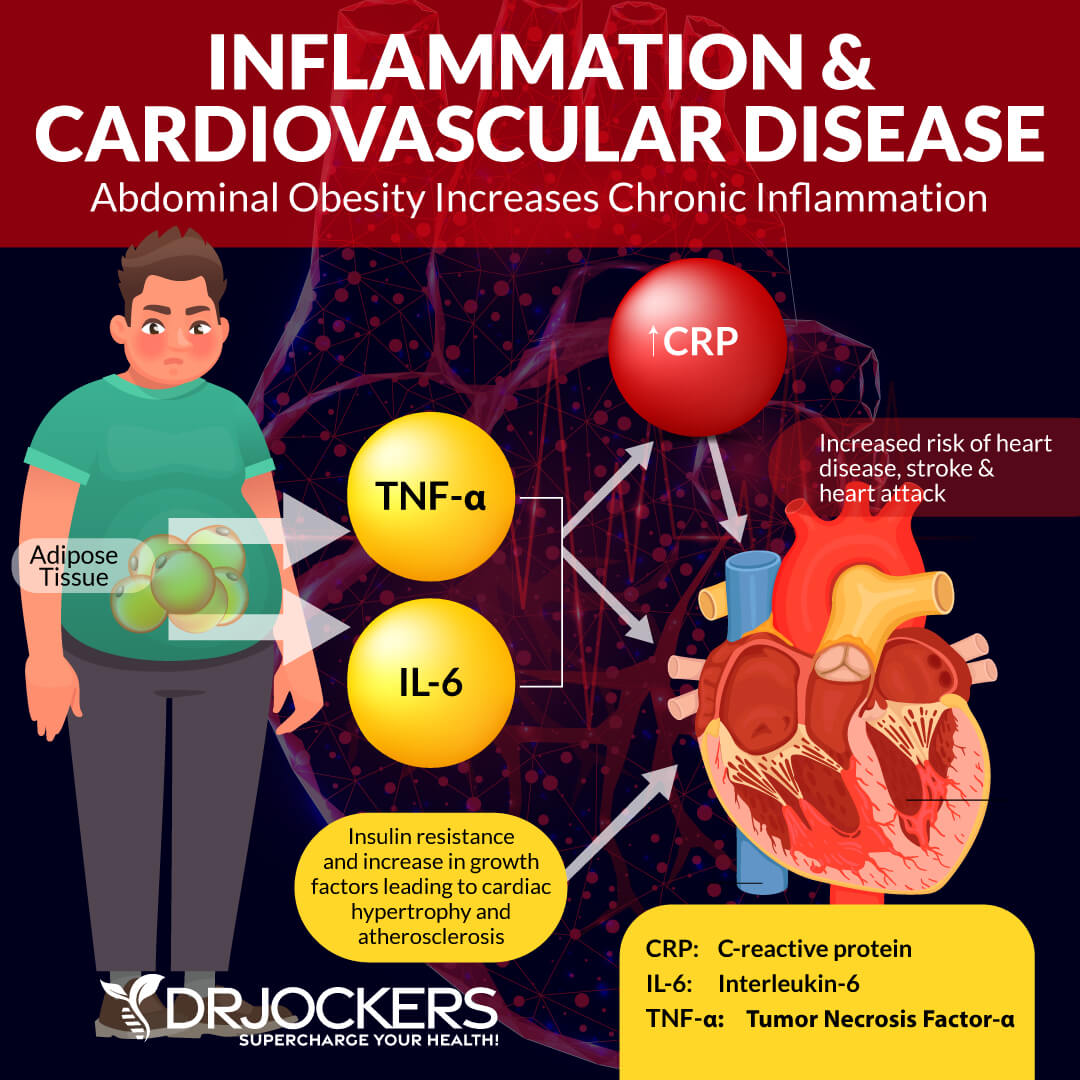
Insulin Resistance
Insulin resistance happens when your body is unable to respond and utilize insulin at the rate it is being produced. Your muscles, fat, and liver are unable to respond appropriately to insulin and cannot absorb glucose (sugar) effectively from your blood.
When this happens, your pancreas ends up producing more insulin than normal to assist the glucose to enter your cells. While insulin affects your muscles, fat, and liver, it also affects your vascular cells.
Research has found that insulin resistance may also make blood vessels resistant as well. Insulin resistant blood vessels are unable to open up well and may increase your risk of clogged arteries. Insulin resistance may also contribute to chronic inflammation, which is another risk factor to clogged arteries. You can learn more about insulin resistance in this article (10, 11).
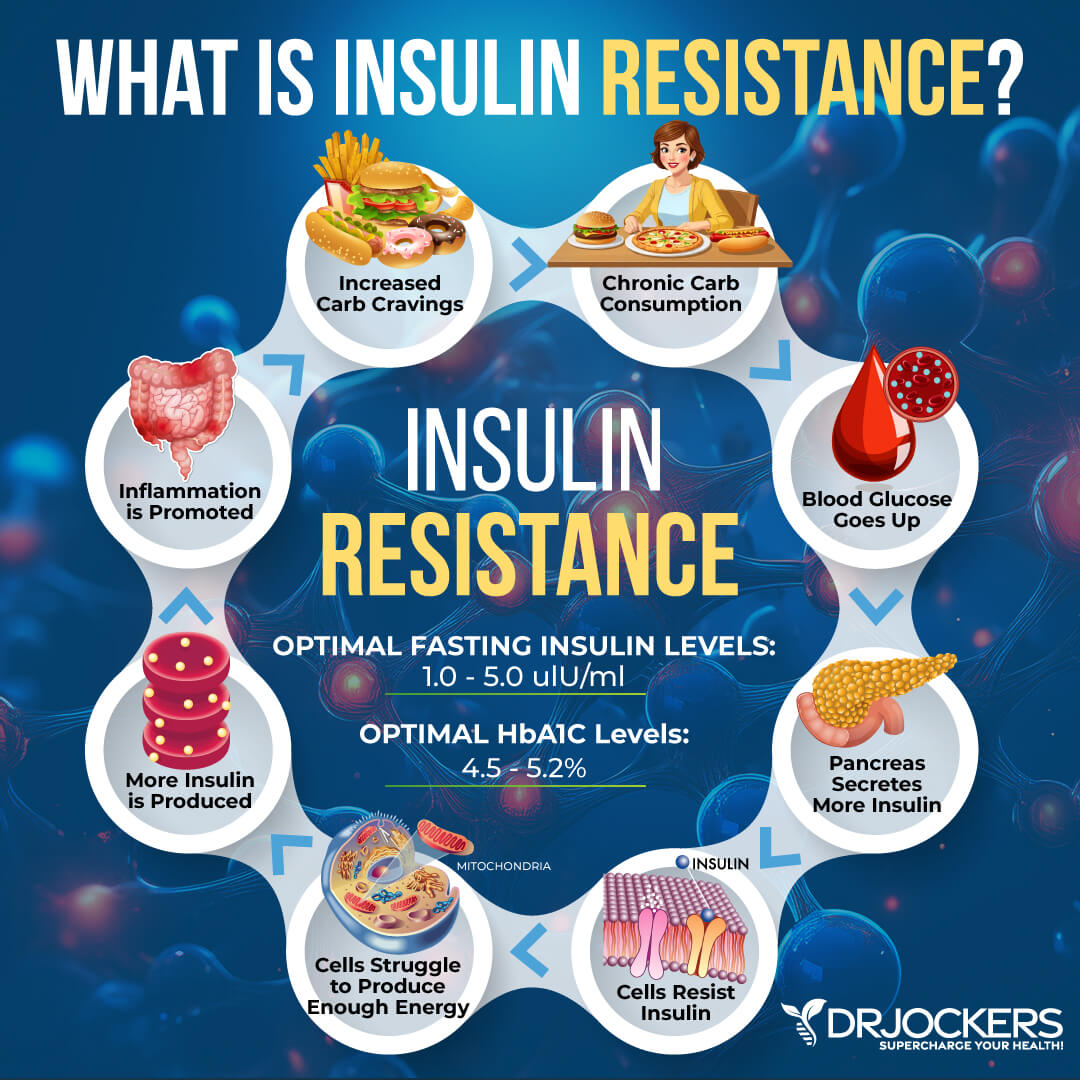
Gut Dysbiosis
Your gut health is connected to all areas of your health, so it is not surprising that it is connected to your arterial and heart health as well. Gut dysbiosis means that there is an imbalance in microorganisms in your gut microbiome and there is too much bad bacteria or other pathogens in your gut.
Gut dysbiosis may increase the likelihood of obesity, insulin resistance, type 2 diabetes, high blood pressure, high bad cholesterol, and chronic inflammation. These factors may increase your risk of clogged arteries and heart disease. Unhealthy gut bacteria overgrowth may also directly contribute to plaques and clogged arteries (12, 13).
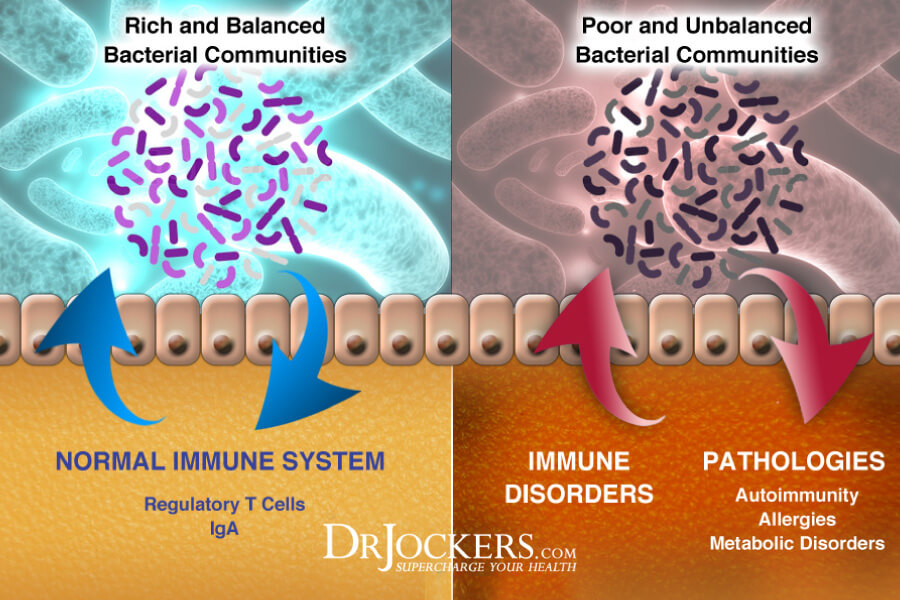
High Environmental Toxin Load
Environmental toxins, including air pollution, pesticides, chemicals in conventional products, toxins in water, and smoke may all play a role in the development of clogged arteries, heart disease, heart attacks, and strokes.
Smoking specifically plays an enormous role in the development and progression of clogged arteries, especially in the aorta, coronary arteries, and arteries of the leg. Smoking cigarettes also may increase the risk of the development of fatty deposits, which increases the growth of plaques (14).
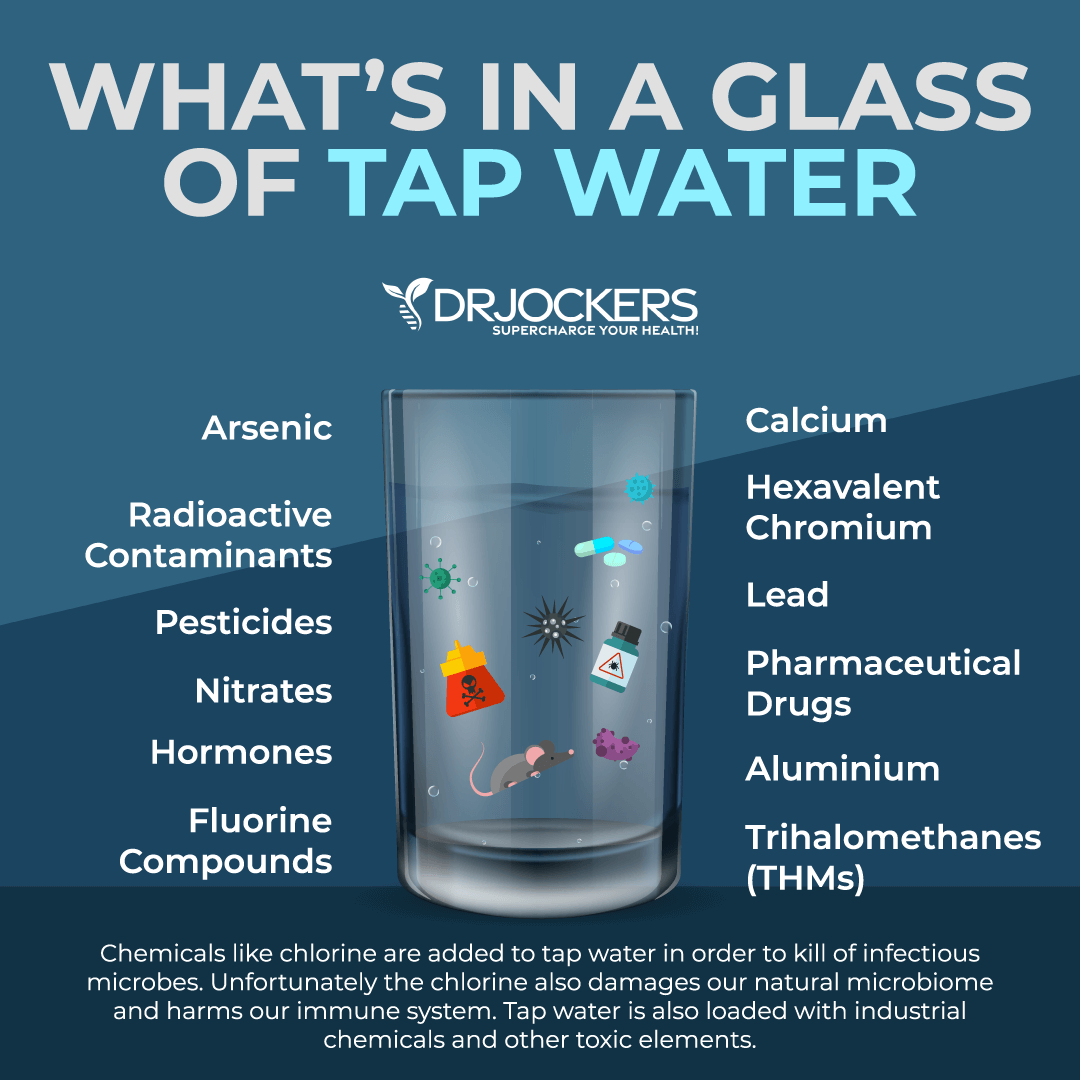
Chronic Stress & Poor Sleep
Chronic stress and poor sleep are not good for your health and well-being. When you are under stress, your body releases a stress hormone called cortisol. In high levels, cortisol may increase your blood pressure, cholesterol levels, blood sugar, and triglycerides, which are all common risk factors for clogged arteries and heart disease.
Chronic stress may specifically contribute to a build-up of plaque in your arteries causing clogged arteries. Poor sleep may cause a surge of white blood cells which may contribute to clogged artery formation as well (15, 16, 17).
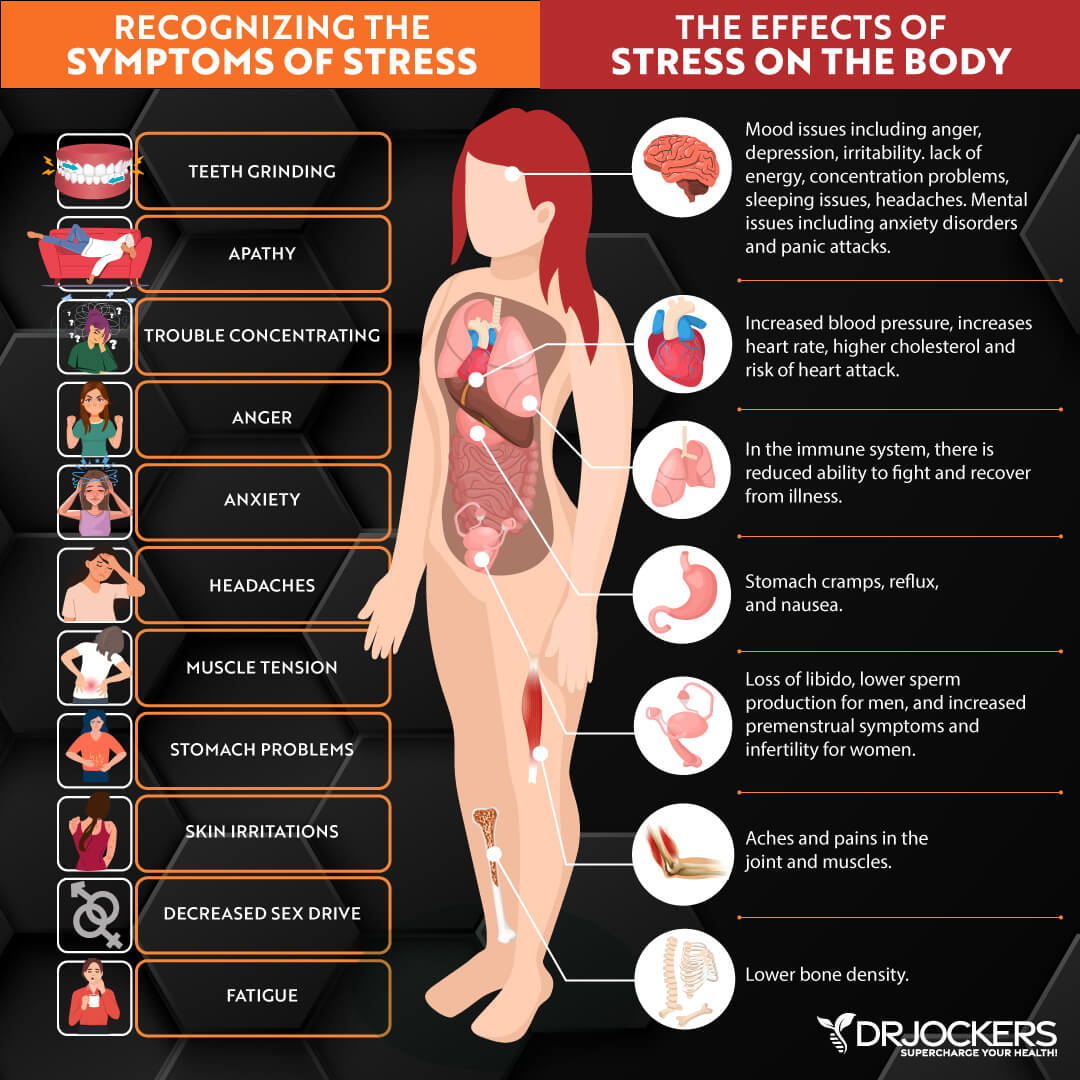
Chronic Infections
Chronic infections may contribute to chronic inflammation, gut dysbiosis, immune health issues, and other health problems. Research has shown that they may also be associated with the development of clogged arteries and increase your risk of heart problems.
They may trigger pre-existing plaques through T-cell activation and inflammatory response. Infections that you may need to be aware of include but are not limited to Lyme disease, EBV, herpes, influenza, C pneumoniae, cytomegalovirus, bacterial infections, and oral infections, including ones that lead to root canals (18).
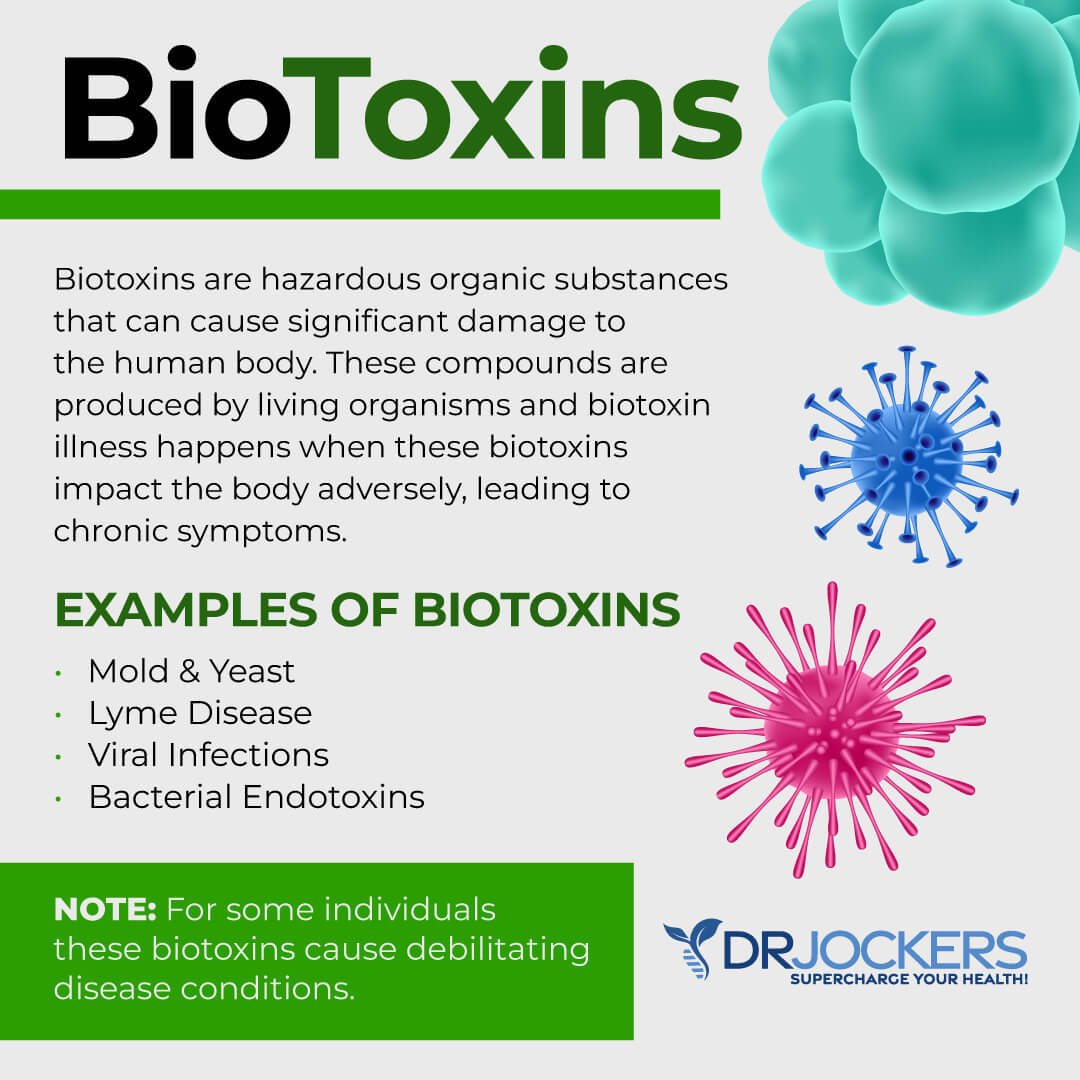
Major Lab Tests to Look At
To determine your risk factors for clogged arteries, I recommend a few major lab tests to look at. Getting a Comprehensive Blood Analysis is a great blood test that allows us to look at all these factors of your health.
Blood Sugar
I recommend looking at your blood sugar levels:
- HbA1C:
This is a measurement of glaciated (damaged) hemoglobin and red blood cells. The ideal number is between 4 and 5.2%. I like to see it at 5% or lower for optimal health.5.3-5.6% is considered moderately high. Between 5.7 and 6.4 means that you have prediabetes and a high risk of developing diabetes, and over 6.4 means that you have diabetes.
- Fasting Glucose: Optimal levels are under 90 mg/dL. Less than 100 mg/dL (5.6 mmol/L) is considered normal. 100 to 125 mg/dL (5.6 to 6.9 mmol/L) is considered prediabetes. 126 mg/dL (7 mmol/L) or higher on two separate tests means you have diabetes.
- Fasting Insulin: Optimal fasting insulin levels are between 2-5 uIu/mL. Between 6-9 uIu/mL is early insulin resistance and anything over 10uIu/mL is insulin resistance. This won’t be flagged on the lab until it is over 24.9 uIu/mL which is a state of severe insulin resistance.
Inflammatory Markers
I recommend looking at your inflammatory markers:
- HsCRP: The ideal number is under 1 and ideally below 0.8. High levels indicate arterial inflammation and it common to see high CRP with infections and periodontal disease.
- LDH (lactose dehydrogenase): The optimal range is 140 to 180. High levels indicate chronic inflammation while lower than 140 is an indication of hypoglycemia.
- Serum ferritin: The ideal range is under 150. High levels indicate inflammation.
- Homocysteine: This is an inflammatory protein made as a byproduct of methionine metabolism. The healthy range is under 9 with optimal being under 7.
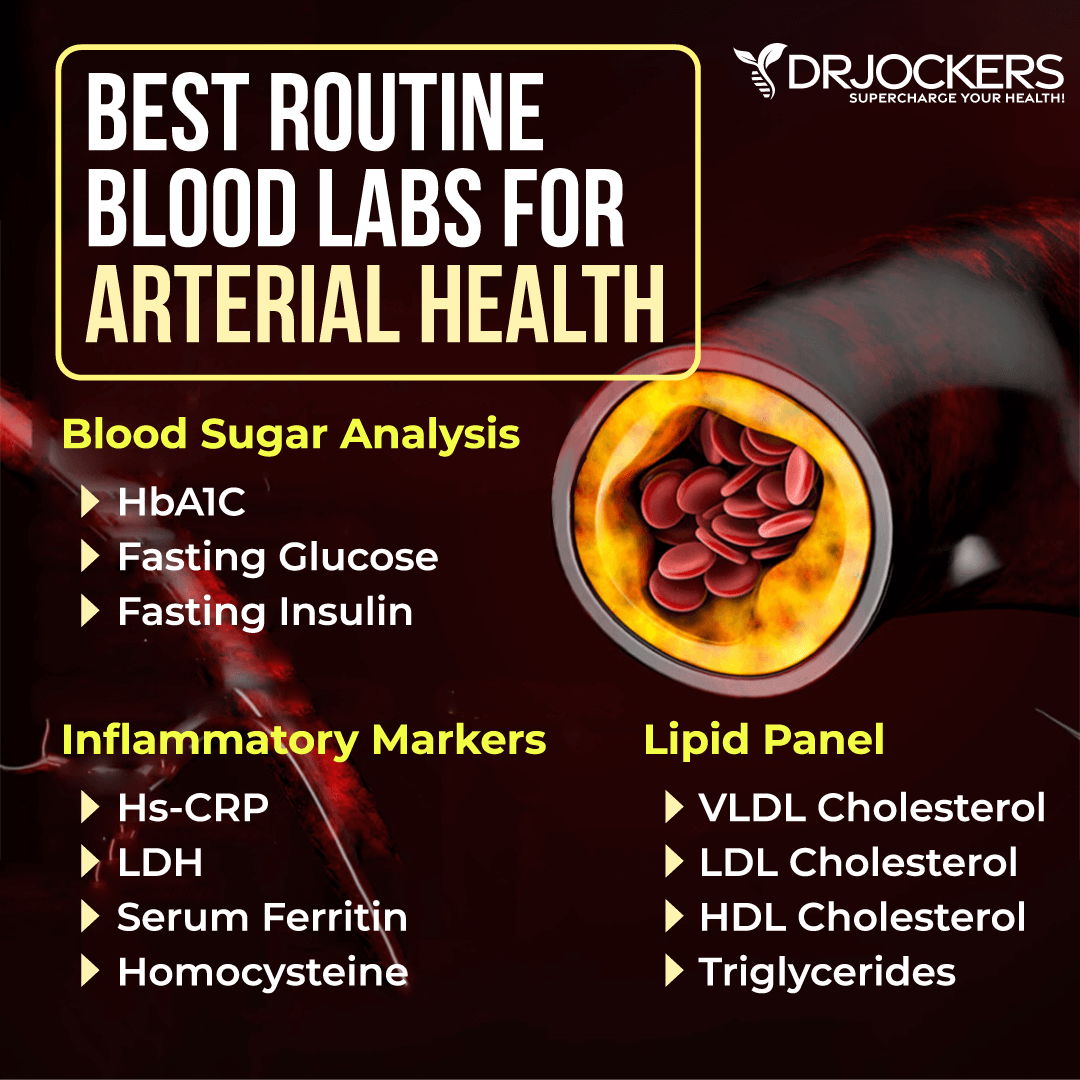
Lipid Panel
I recommend a lipid panel test looking at the following areas:
- VLDL cholesterol: The ideal range is 5 to 30 mg/dl.
- HDL cholesterol: The idea range is 55 to 80. Levels above 100 can indicate chronic inflammation or active infection in the body.
- Triglycerides: The ideal range is 40 to 80.
Having a balanced ratio of LDL to HDL and triglycerides to HDL is essential for your health. Ideally, we are looking for an LDL: HDL ratio: 3:1 or less. We are looking for a triglyceride:HDL ratio: 2:1 or less, 1:1 being optimal.
Higher triglyceride and lower HDL levels are typically an indication of insulin resistance and high fasting insulin level. To learn more about cholesterol and lipid panel testing, I recommend this article.

Natural Support Strategies for Cardiovascular Health
I recommend a variety of natural support strategies to improve your cardiovascular health. These strategies are not at this time FDA approved to prevent, mitigate, treat or cure heart disease and they should not be confused as such. With that said, they can be extremely helpful for supporting healthy circulation. Let’s look at them one by one.
Anti-Inflammatory Diet
One of the main natural support strategies for clogged arteries is eating an anti-inflammatory diet. Remove inflammatory foods, such as refined sugar, processed food, refined oils, deep-fried food, junk food, artificial ingredients, and high carb meals from your diet.
Eat a diet rich in anti-inflammatory, nutrient-dense foods, including green vegetables, low glycemic index fruits, herbs, spices, fermented foods, healthy fats, and clean protein. Choose organic produce and products whenever possible and always follow the list of Dirty Dozen and Clean Fifteen. To learn more about the anti-inflammatory diet plan I recommend, read this article (19).
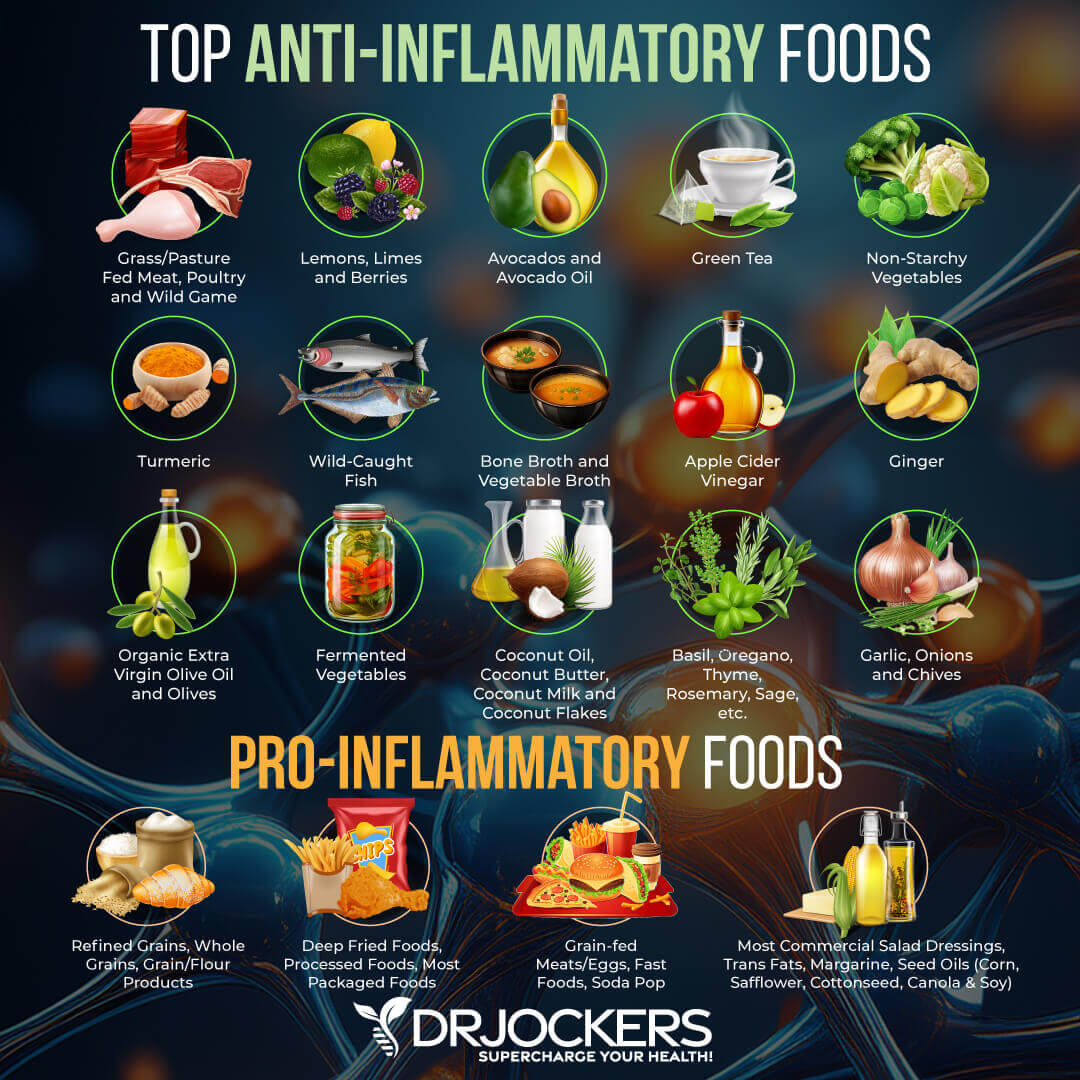
Intermittent Fasting
Intermittent fasting is a way of eating that cycles between not-eating (fasting) and eating (feasting) within a period of time. It is a great way to reduce inflammation, increase autophagy, reduce insulin resistance, improve cellular repair, and reduce the risk of disease.
One of the most popular intermittent fasting methods is the 16:8 approach, which includes a 16-hour fast (including your overnight sleep) and an 8-hour eating window with 2 or 3 meals.
However, there are several other intermittent fasting methods you can try depending on your personal health, fasting experience, and schedule. To learn more about different intermittent fasting strategies, I recommend this article. To learn more about how intermittent fasting may benefit your heart health, read this article (20, 21, 22, 23, 24, 25, 26, 27, 28, 29, 30).
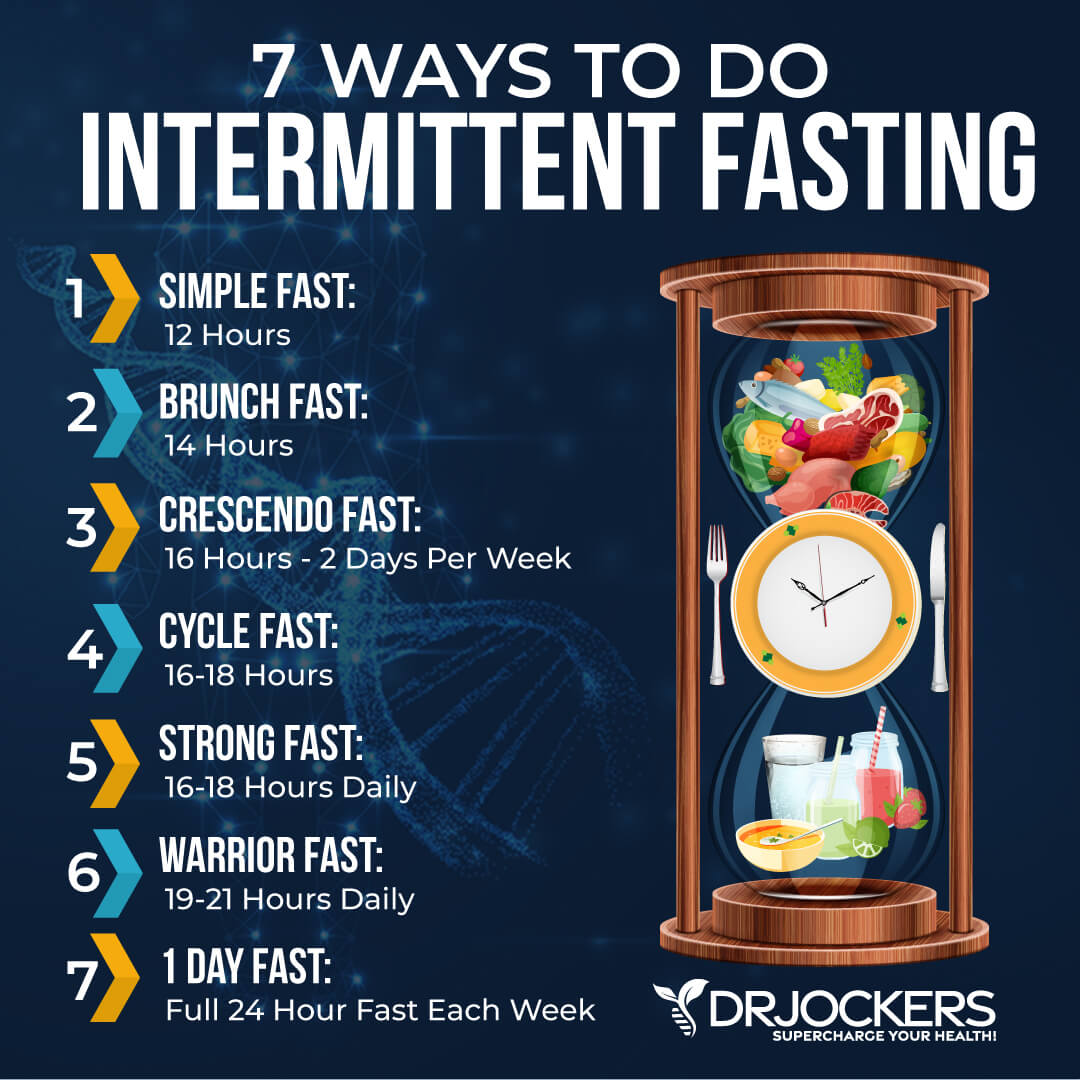
Reduce Stress Levels
Reducing stress is a critical natural support strategy for clogged arteries. I recommend that you reduce stressors from your life as much as possible. Turn off the news, and only look at it once a day or a few times a week for a specific period. Reduce your social media use and time on the internet.
Avoid people and situations that bring you down. Surround yourself with loving and uplifting people. Engage in uplifting and relaxation-promoting activities.
Read, try some arts and crafts, play cards or board games, sing, and dance. Spend time in nature and do some grounding walking barefoot on grass. Practice daily gratitude and try positive affirmations. Practice self-love and laugh with friends and family. Meditate, pray, journal, and try daily breathwork. Be grateful and smile more (15, 16).
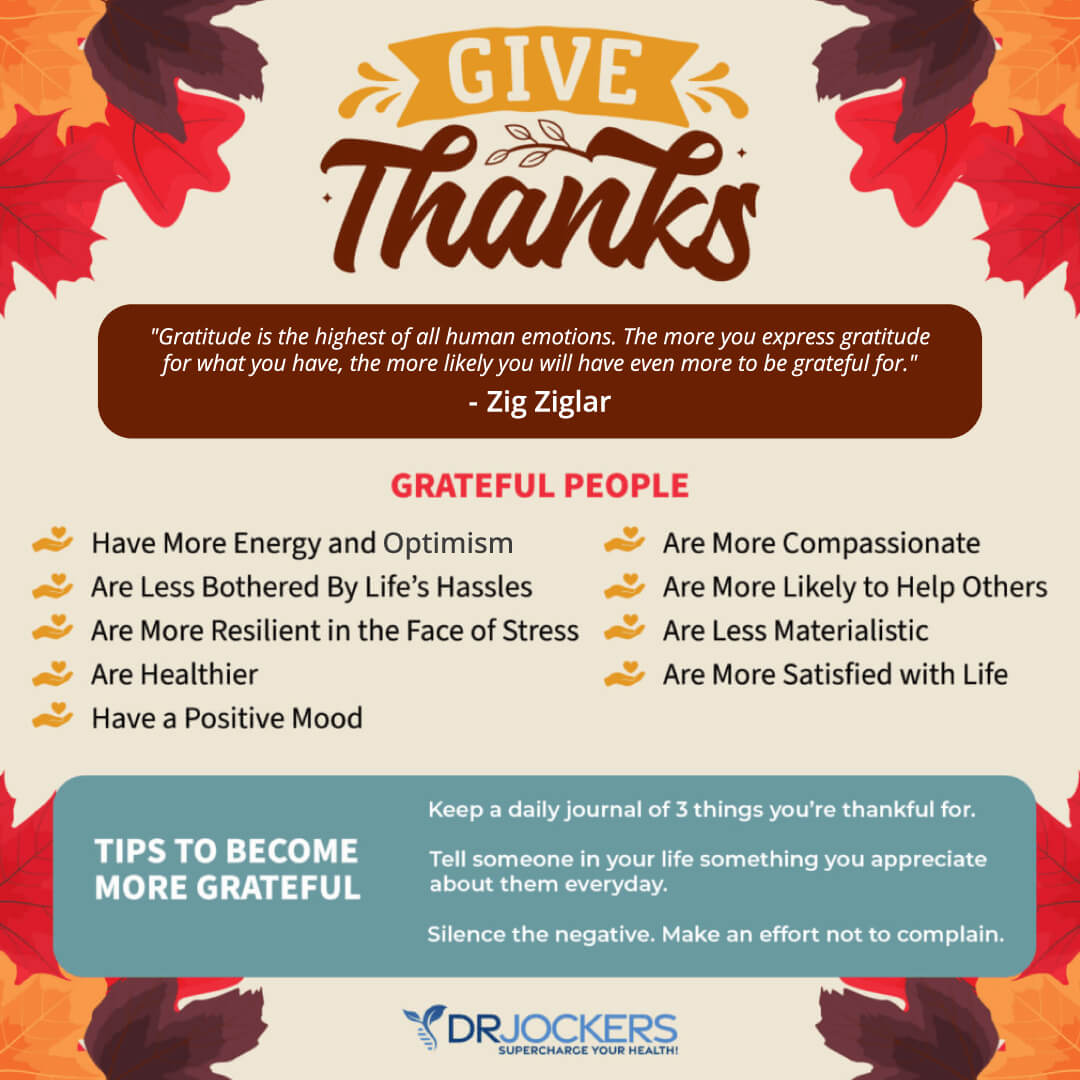
Prioritize Good Sleep
Prioritizing good sleep is just as important as reducing your stress levels. Develop a regular schedule going to bed and getting up at the same time every day to support your circadian rhythms.
Avoid electronics, sugar, caffeine, heavy foods, and stress close to the bed. Engage in relaxing activities, including stretching, relaxing baths, meditation, and prayer. Make sure that you have a supporting bed, pillow, and bedding, and sleep in a dark calming room (17).

Regular Movement & Exercise
Regular movement and exercise are essential for your cardiovascular and overall health. Regular movement may help to reduce your risk of plaque formation and clogged arteries. I recommend that you exercise at least 20 minutes, 5 times a week. This could be as simple as taking a walk each day.
Aim for a mix of cardiovascular exercises, such as trampoline workouts, running, swimming, biking, or aerobics classes, and strength and resistance training, such as weight lifting, bodyweight workouts, TRX, or cross-fit. High-intensity interval training is a great mix of both worlds. Add some low impact workouts, such as yoga or pilates. Stay active throughout the day by stretching, walking, and taking the stairs (31).
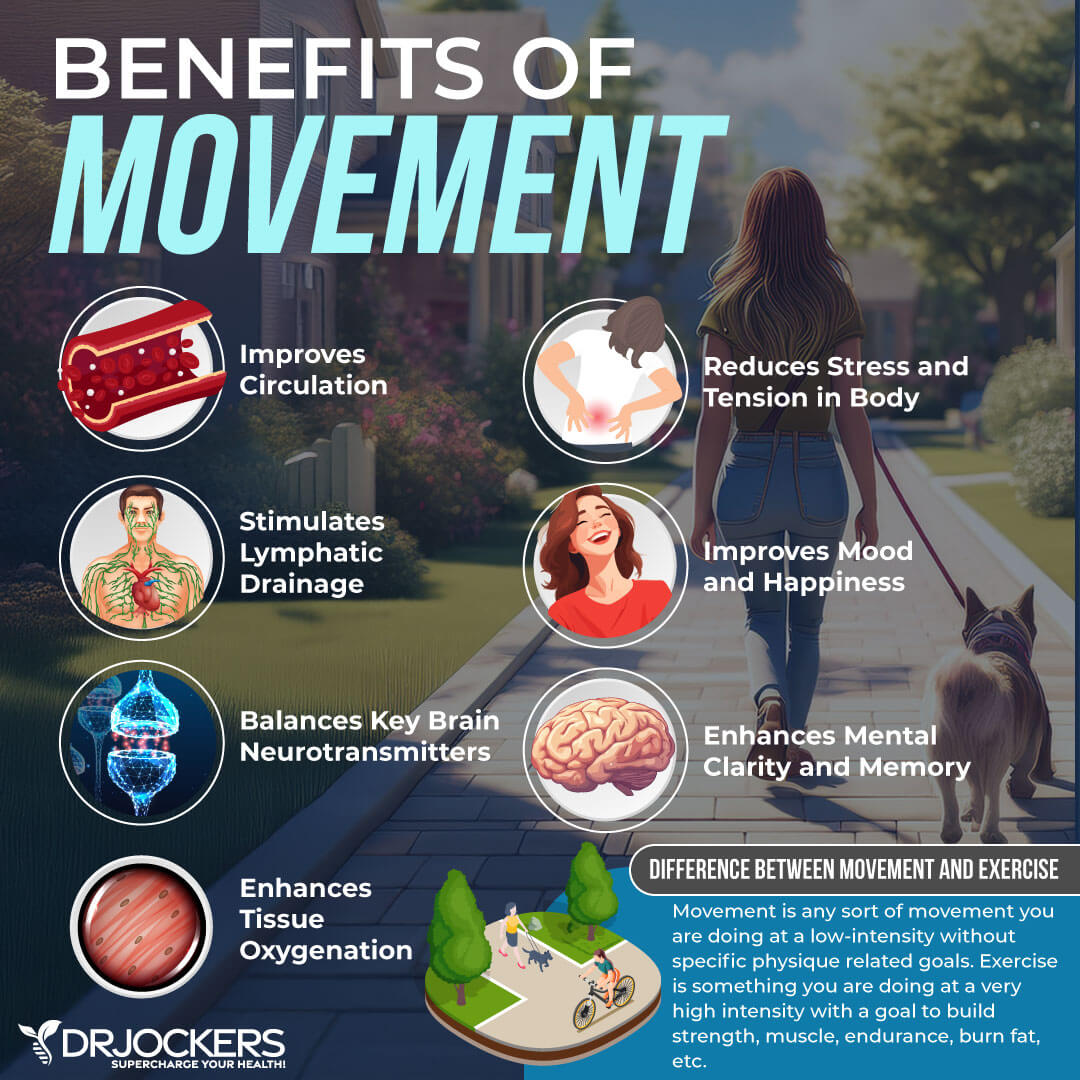
Improve Detoxification
Toxins in your body may increase your risk of inflammation and health issues, and environmental toxicity may increase your risk of clogged arteries. It is important that you improve your detoxification pathways to support your body and clogged arteries. Remove toxic, non-organic ingredients in your food, beauty, body, and cleaning products.
Make sure that you drink purified clean water instead of regular tap water and invest in an air purification system. Spend time in fresh air. Support your lymphatic health through dry brushing. Practice fasting or intermittent fasting. I also recommend our Thyroliver protect supplement to support detoxification (14).
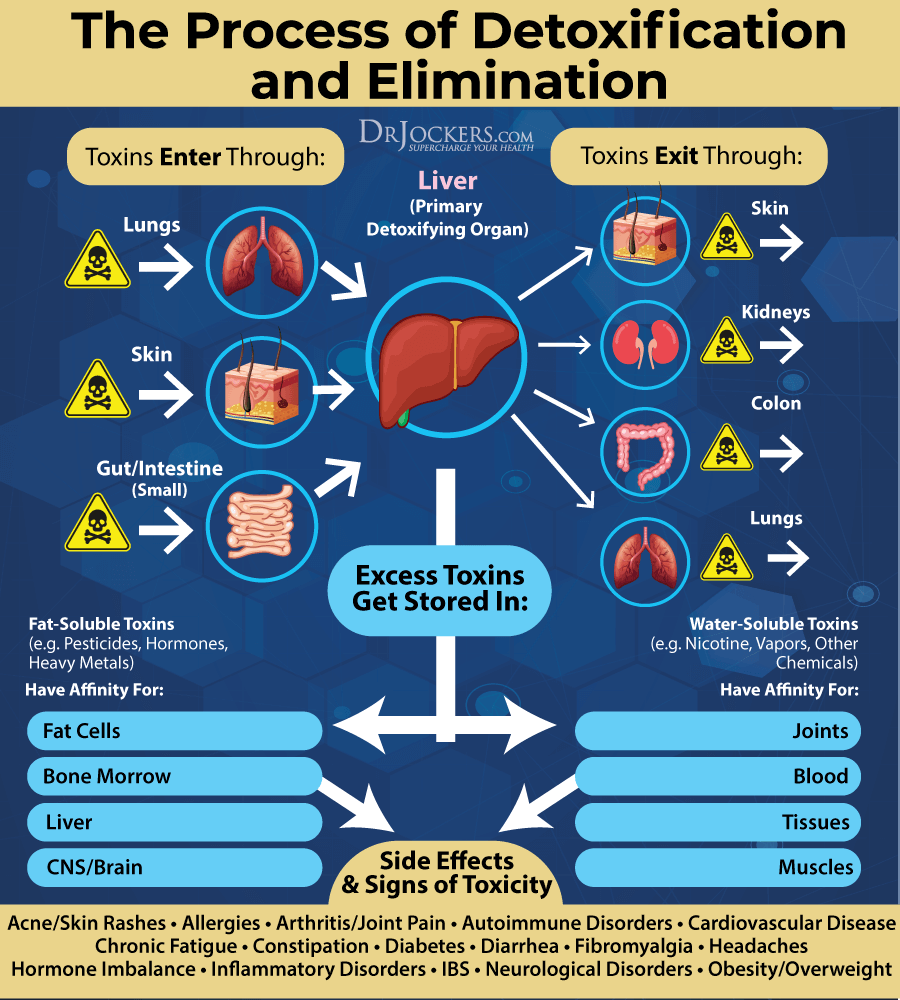
Support Gut Health
As you’ve learned, gut dysbiosis may increase your risk of clogged arteries. Hence, supporting your gut health is important for your cardiovascular and overall health. It is important that you follow a gut-healthy anti-inflammatory diet as I outlined earlier.
Eat plenty of fermented foods, such as kimchi, sauerkraut, kefir, and kombucha. Take a daily probiotic supplement, such as ProbioCharge, to support a healthy gut microbiome. I also recommend Gut Repair for gut dysbiosis and gut health issues (12, 13).
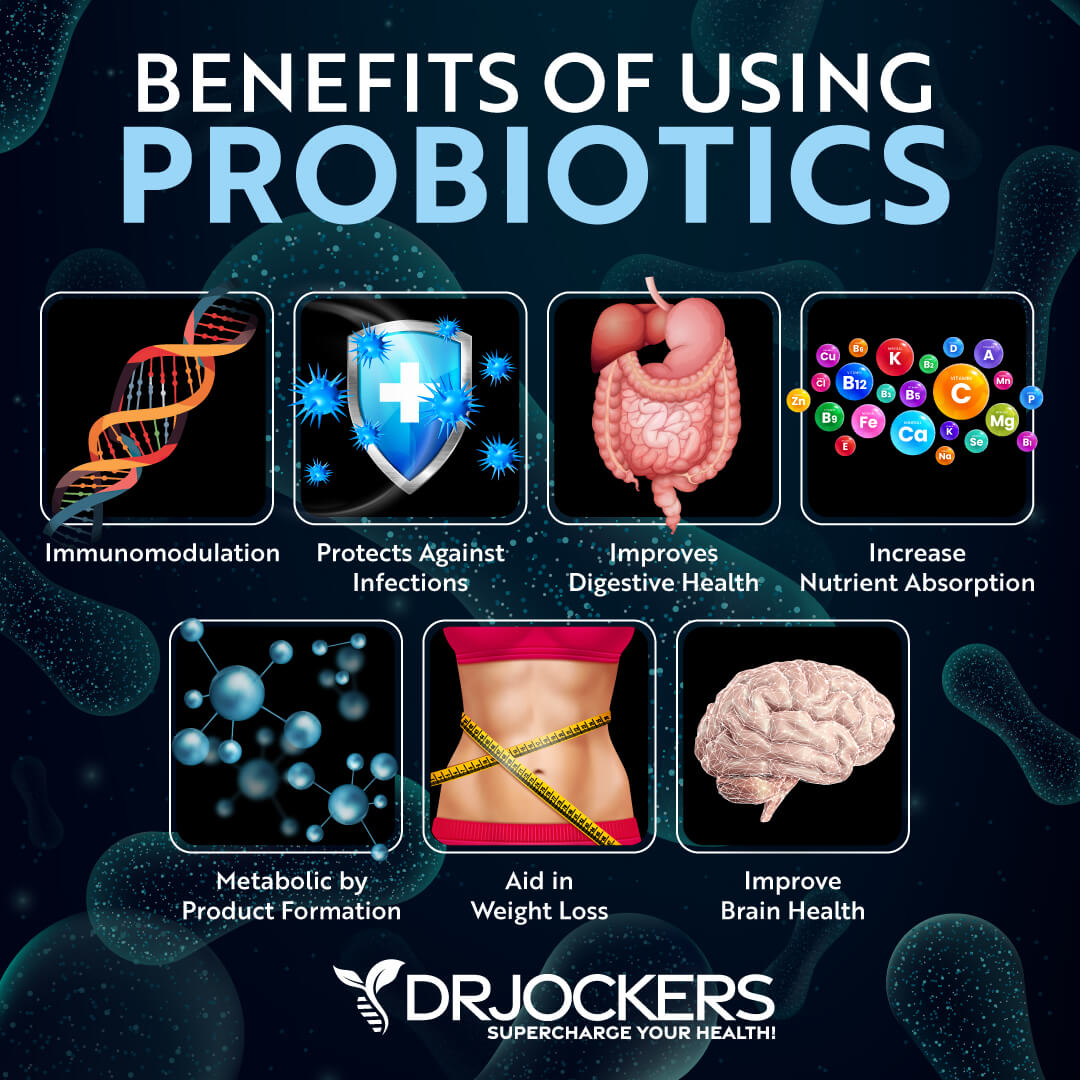
Optimize Vitamin D Levels
Vitamin D is critical for your overall health and deficiency may contribute to serious health issues. Research has shown that vitamin D deficiency may increase your risk of cardiovascular problems. Now that spring is here and summer is coming, spend plenty of time outside to get some sunshine.
Make sure to protect yourself by not staying out mid-day when the sun is the strongest. Eat vitamin D-rich foods including oysters, yogurt, liver, egg yolk, and spinach. However, the sun and food alone are not enough to meet all your vitamin D needs.
I recommend a daily intake of Vitamin D3/K2 to improve immune and circulatory health (32). Remember, this supplement is not at this time FDA approved to prevent, mitigate, treat or cure heart disease and it should not be confused as such.
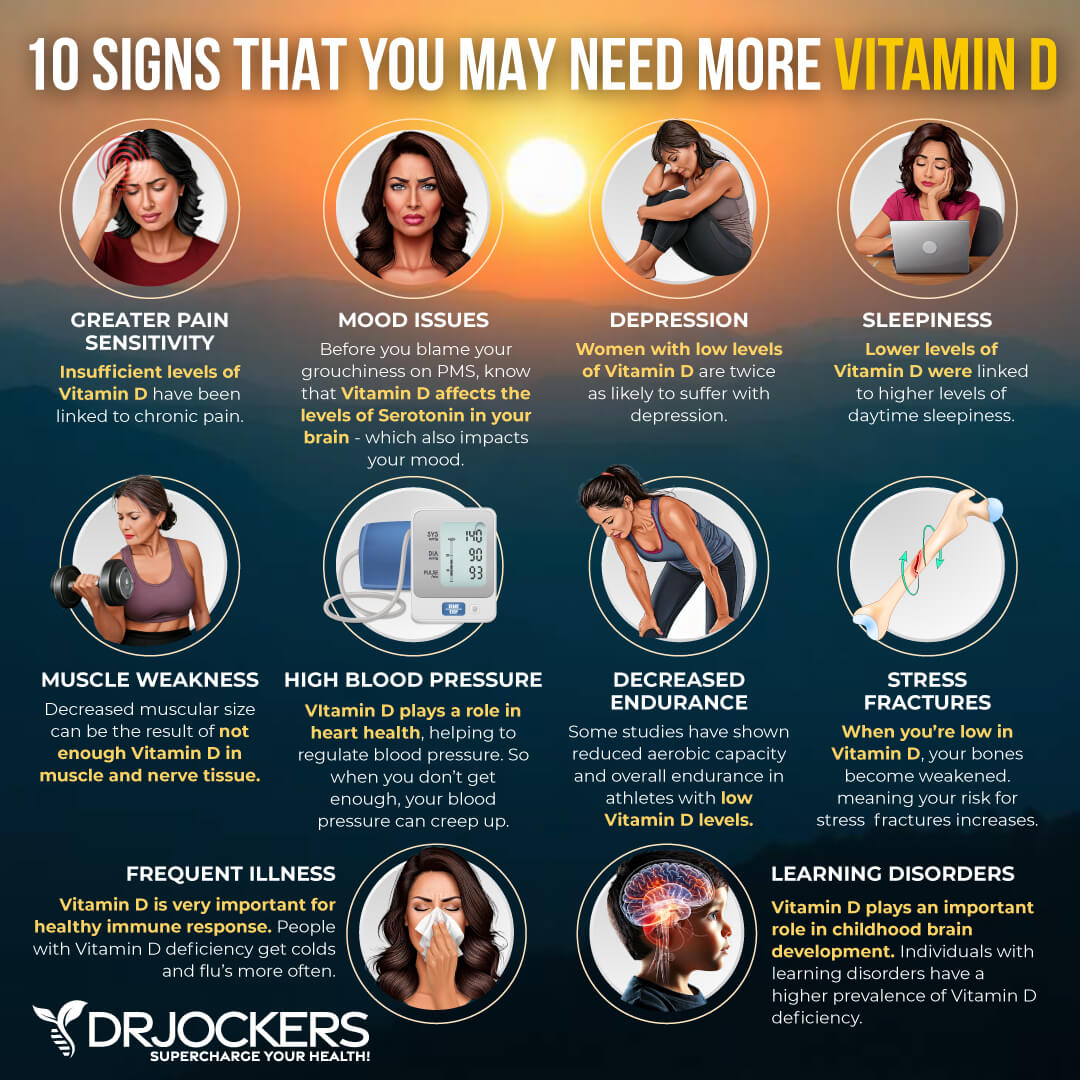
Use Omega 3 Fatty Acids
Omega-3 fatty acids are fantastic for decreasing inflammation in your body and supporting your health. They are especially important and beneficial for your cardiovascular health.
Eat plenty of foods that are rich in omega-3 fatty acids, including fatty fish, seafood, hemp seeds, chia seeds, and flax seeds. I also recommend a daily intake of Pro Omega CRP to improve your omega-3 levels and support a healthy inflammatory process to protect your health (33). This supplement is not at this time FDA approved to prevent, mitigate, treat or cure heart disease and it should not be confused as such.
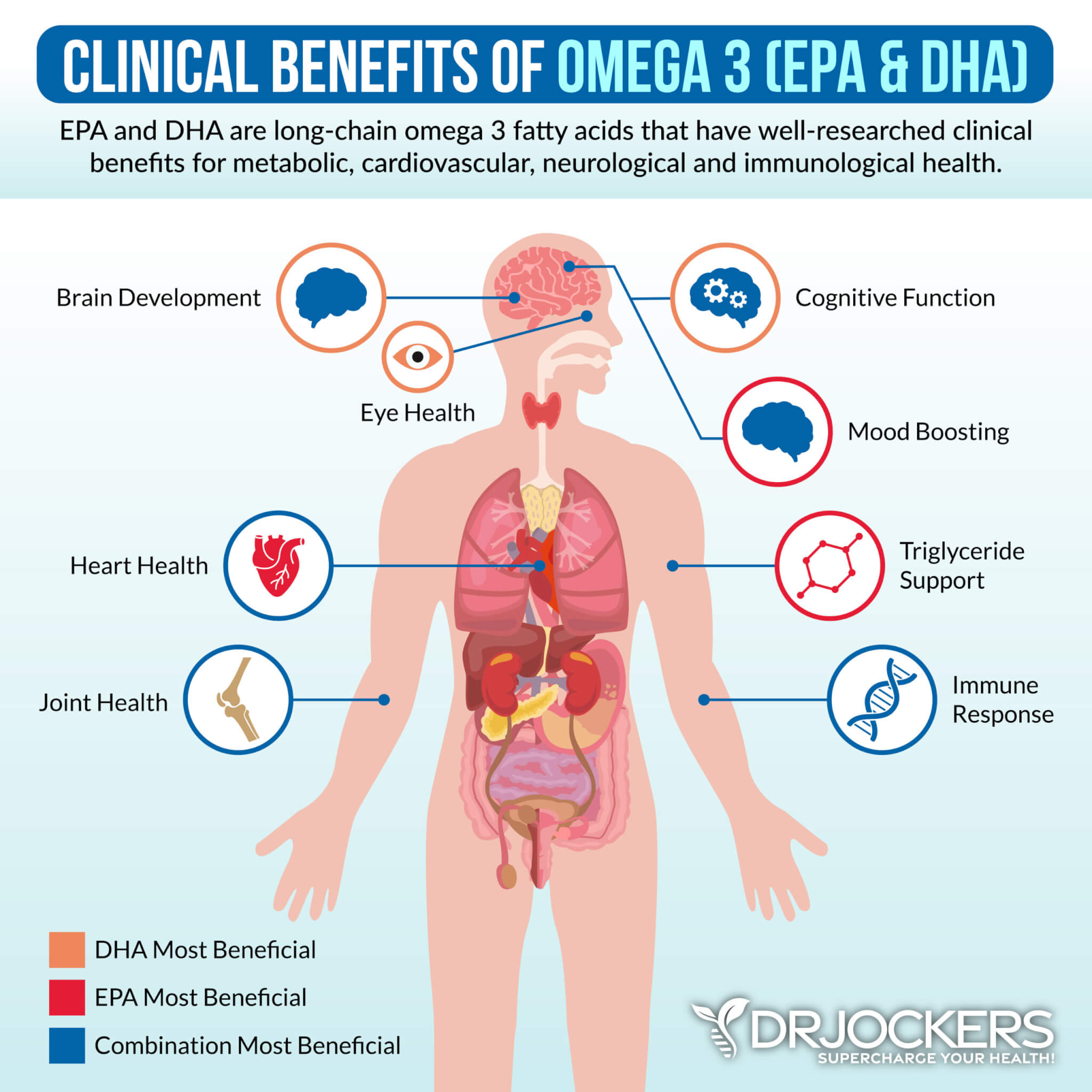
B Vitamins
B vitamins are important for supporting your health overall health. Foods that are rich in vitamin B, include meat, eggs, nuts, seeds, and dark leafy greens. However, in additional to a healthy diet rich in vitamin B, I recommend supplementation as well with pre-methylated forms of B vitamins. Homocysteine is an inflammatory amino acid produced as a byproduct of protein metabolism.
Elevated homocysteine leads to excessive clotting which diminishes blood flow to major regions of the body and may increase your risk of blood clotting, heart attacks, stroke, and brain problems.
Methylation deficiencies may also lead to low levels of B vitamins and consequent health issues, so it is important that you take pre-methylated forms of B vitamins to support homocysteine function, optimal absorption, and overall health. To support your body with B vitamins, I recommend B Strong (34). This supplement is not at this time FDA approved to prevent, mitigate, treat or cure heart disease and it should not be confused as such.
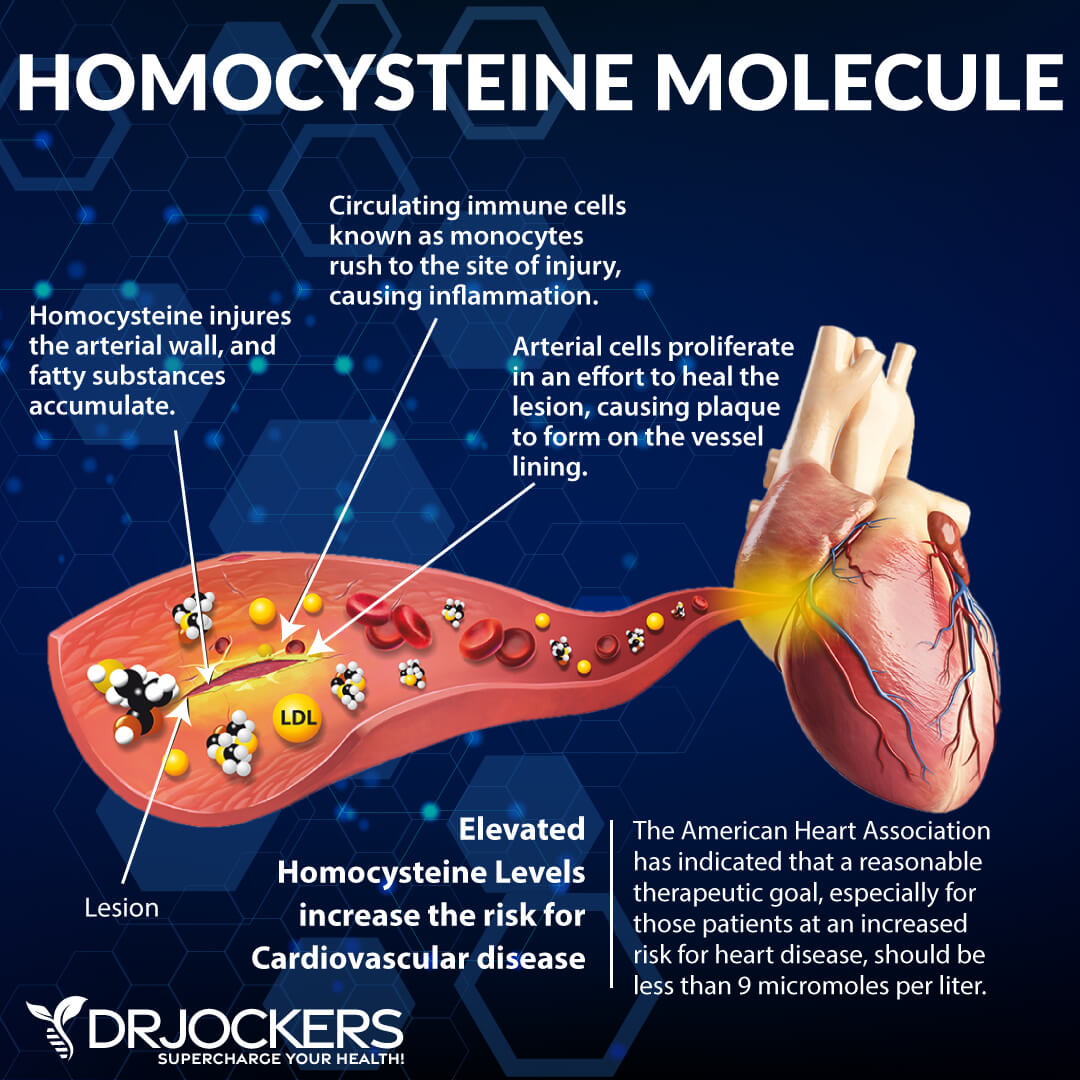
Magnesium
Magnesium is an essential mineral that helps your body’s relaxation response, lowers inflammation, and improves overall health. Research shows that it may benefit the health of your arteries.
Magnesium-rich foods include dark leafy greens, nuts, seeds, broccoli, green beans, and asparagus. However, due to our depleted soils, supplementation is also critical. I recommend a daily intake of Brain Calm Magnesium for optimal health (35). This supplement is not at this time FDA approved to prevent, mitigate, treat or cure heart disease and it should not be confused as such.
Support Nutrients for Inflammation
Finally, I recommend that you take nutrients that decrease inflammation. Inflam Defense is a powerful supplement that supports your body’s inflammation response, healthy circulation, lymphatic function, and fighting oxidative stress.
This supplement is not at this time FDA approved to prevent, mitigate, treat or cure heart disease and it should not be confused as such. However, it is great for improving circulatory health as it is powered by anti-inflammatory herbs and compounds, I’ve written about in this article, including quercetin, rutin, Boswellia, ginger, and turmeric.
 Final Thoughts on Clogged Arteries
Final Thoughts on Clogged Arteries
Your arteries are major blood vessels that carry oxygen-rich blood from your head to toe. Clogged arteries have a buildup of plaque on their inner walls, which may decrease or block blood flow, and increase your risk of heart attack, stroke, and even death.
I recommend that you get the lab work mentioned in this article to understand your health better. Follow my natural support strategies to improve your circulation and cardiovascular health.
If you want to work with a functional health coach, I recommend this article with tips on how to find a great coach. Our website team offers long-distance functional health coaching programs. For further support with your brain health and other health goals, just reach out and our fantastic coaches are here to support your journey.
Inflammation Crushing Ebundle
The Inflammation Crushing Ebundle is designed to help you improve your brain, liver, immune system and discover the healing strategies, foods and recipes to burn fat, reduce inflammation and Thrive in Life!
As a doctor of natural medicine, I have spent the past 20 years studying the best healing strategies and worked with hundreds of coaching clients, helping them overcome chronic health conditions and optimize their overall health.
In our Inflammation Crushing Ebundle, I have put together my very best strategies to reduce inflammation and optimize your healing potential. Take a look at what you will get inside these valuable guides below!






I recently had a large adenoma removed on one parathyroid. Labs have returned to normal & taking lots of calcium. Having some tingling sensations but they say that’s normal. Taking mag & a slew of other supplements. Just wondering what you may suggest for optimal health. I am hypothyroid taking NDT.
Sorry to hear that! We aren’t able to give medical advice in the comments but I would certantly look to work with a functional health practitioner to optimize your health: https://drjockers.com/functional-nutrition-tips-to-find-a-great-health-coach/
Are there any supplements that studies have shown to clean out clogged arteries ? Things like MK7 or Modified Citrus pectin .
I would not take calcium as it appears taking calcium tabs clogs arteries
You need magnesium yo drive the calcium in the body not into the arteries
Do the recommendations of dr Jocker. Get advice from a functional dr
If group is all available
Good luck
Dr. Jockers,
over the years, I have gradually built up in taking too many supplements [ in capsule, gel, tablet, powder ] daily.
Will taking too many supplements cause NAFLD [non-alcoholic fatty liver ]?
It seems that many supplements contain fillers, binding agents, etc
Hey Albert, if they are good supplements, it won’t cause NAFLD. Be sure you are getting high quality, professional grade supplement that are 3rd party tested for purity and efficacy.
I wonder about those fillers, too, e.g. stearic acid, stearate, silica, etc. I have asked other professionals but have never gotten a straight answer.
Yes these are normal compounds in very small quantities that actually provide benefits. Read more here: https://drjockers.com/magnesium-stearate/
Dr. Jockey,
Do you have books to buy ?
Yes, the Keto Metabolic Breakthrough here: https://drjockers.lpages.co/keto-metabolic-breakthrough-b/
Good evening!
Do you see patients looking for a functional coach?
Thank you!
Giselle Mastrototaro
Hello, yes we do have fantastic functional health coaches here: https://drjockers.lpages.co/long-distance-coaching-dr-jockers/
What are your thoughts on using serrapeptase and nattokinase for cardiovascular health?
Yes those are excellent!
Would artery health determine if you should eat Keto or not since you’re eating a lot of fats although healthy?
Yes a real food keto diet with intermittent fasting will help improve arterial health and clear out plaque build up because it reduces inflammation in the body.
I used Nattokinase to dissolve a 100% solid blockage blood clot in just hours. I went for a scan to find out why my leg was all puffed up and they found the clot. The techincian stamped the form STAT and said I MUST go direct to the nearest Hospital emergency…..so I went home. My Dr. called right away and since I didn’t go to emergency I HAVE to fill a prescription that he called in right away. O looked up the prescription…..didn’t like it. I found an ncbi.gov nih lab study that said one capsule of Nattokinase dissolved a dolid blockage blood clot in a dog in 5 hours. I figured that’s for me. Got it at a health store locally. Unbelievable!!!!!! This is why they are trying again to ban it.
Excellent information, but I would question your advice to stay out of the midday sun, as it is only when the sun is over the azimuth (when your shadow is shorter than you) that the UVB rays, the ones that make vitamin D, get through the atmosphere.
Yes very true, it is a good idea to get some high quality sun around mid-day!
Hello Dr Jockers,
Thanks for your articles.
Just wondering why you have placed “Eggs” in the Pro Inflammatory foods, when on a LCHF or Keto way of eating a lot are eaten? You mention them, in talking about the need of Vitamin B, & egg yolk in Vit D. I know since I’ve been eating Low Carb/Healthy Fat that I consume at least 4 eggs a day, or sometimes more…..love my eggs!!! 🙂
Blessings,
Yes we love eggs as one of the most nutrient dense and blood sugar stabilizing foods. However, there are some individuals who have a food sensitivity to them and can have an inflammatory response. But for most they are a powerful healing food!
What if you experience an increase in LDL cholesterol while on a keto diet? Should you continue regardless or is that just not a good diet for everyone?
Hello Elaine, this is a great question and I address it in detail in this article: https://drjockers.com/high-cholesterol-ketogenic-diet/
Dr. Jockers, please include the inexpensive lipid LP(a) (lipoprotein – little a) test to your list. Its a genetic marker and it doesn’t matter how healthy your lifestyle choices may be, a high numbered test result could spell disaster for one’s cardiac health. They don’t call it The Triple Murderer for nothing. High doses of niacin can bring it down. Statins don’t work. If one knows they carry the gene they can at least know that they should practice other healthy habits promoting heart health. LP(a) is a genetic marker and it doesn’t matter how healthy your lifestyle choices may be, a high numbered test result could spell disaster for one’s cardiac health. They don’t call it The Triple Murderer for nothing. High doses of niacin can bring it down. Statins don’t work. If one knows they carry the gene they can at least know that they should practice other healthy habits promoting heart health.
Mine was brought down to a normal level with the use of high-dose niacin (nicotinic acid – extended release, 1500mg divided dose daily). High doses can be toxic to the liver so it is advised to work with a doctor who can monitor those levels also. A liver supplement (milk thistle, etc.) has brought my levels down also. Anyone trying the niacin, needs to start at a low dose and work up to the higher to get your body used to the niacin/red flush, prickly feeling.
Yes that is another great lab to view! We have seen the Lp(a) change a lot on labs with the reduction of pro-inflammatory omega 6 fats and increased amounts of omega 3 fats!
What about adverse effect of a soy product like nattokinase on thyroid? Thank you!
The fermented soy dosn’t negatively impact thyroid function. Thyroid health is most commonly an issue with liver and gut health.
Hi, thanks for this great article. I’ve heard that Pomegranates are excellent for reducing arterial plaque. I’d love to know if you agree with this.
Yes they can be very helpful due to the high amount of anthocyanins and ellagic acid in pomegranates.
With regard to the problem of chronic inflammation, I always like to remind people that various types of infection in their mouths can be an important cause of it. After having suffered from three heart attacks over the course of 7 years, the last one nearly fatal, I was nothing short of astonished when, on my first visit with a holistic dentist who knew absolutely nothing about my health history, he showed me the x-rays he had just taken and said, “You’d better have that dead tooth [a decades old root canal] removed and have the infection it has caused in the jawbone above it cleaned out before it causes you to have a heart attack.” I got online, did quite a bit of research, and learned all about Weston A. Price’s research linking root canals to heart disease way back in the middle of the last century. I got that same dentist to remove the dead tooth and clean out the infection of anaerobic bacteria whose excreted toxins were causing the inflammation in my cardiovascular system; and here I am today, 11 years after my last heart attack totally free of any symptoms of heart disease.
Imagine how different my life would have been if after my first relatively mild heart attack my new cardiologist had simply asked me on my first visit with him, “Greg, have you ever had a root canal?” Unfortunately we are currently living with a “health care” system in which anybody with the letters M.D. after their name was never taught in the Big Pharma-controlled “medical schools” one iota of the wealth of true health information that is found on this website. Thank you so much, Dr. Jockers and team, for all of the free education you provide for all of us autodidacts.
I have been studying nutrition for over 40 years and always learn something new. I appreciate all you are doing and teaching others. I learn so much from you. Keep up the great work. God Bless You and your family, and God Bless America!!!!
Thank you for all your support Beverly! Blessings!
I try to stay healthy by taking a wide variety of supplements. Do you have any articles on which ones to take on an empty stomach vs with meals? Plus, are there combinations of certain supplements that should be avoided? It’s hard to spread them out throughout the day when working or involved in so many activities. Thanks.
Bob, I take a wide variety of supplements also and I would like the answer to your questions as well. Thanks.
This is not so much clogged arteries, but mitral valve prolapse. Can this be fixed naturopathically i.e.diet and fasting. Do you have any suggestions?
Many thanks.
Hi there,
This is a great article – I wish there was more info out there to help us assess our own health with data. I am in Canada and would appreciate the units for the Inflammatory Markers – I know they are often different between countries. For example my recent CRP result is in mg/L. Many thanks!
Greetings dear doctor. Kindly advise how can we obtain a down loadable copy of the excellent article on clogged arteries for personal reference?
Many thanx, Lawrie 🤔🙏🏻
Hi Dr Jockers,
I have PMR and wonder if I might also have Giant cell. I’ve read the only way to know is to have a biopsy from the temple arteries and if it’s positive take 40 to 60 mg of prednisone.
Is there any other way to know. I am struggling with the thought of having this done.
Thank you for your articles…they are very helpful.
I would suggest consulting with a cardiologist to learn more about this.
Perhaps the Ankle-brachial Index(https://www.mayoclinic.org/tests-procedures/ankle-brachial-index/about/pac-20392934) would also be useful for determining the condition of the arteries.
Yes for sure, thanks for sharing!
I started taking nattokinase capsules a few months ago and my blood pressure is now consistently better than 110/70.